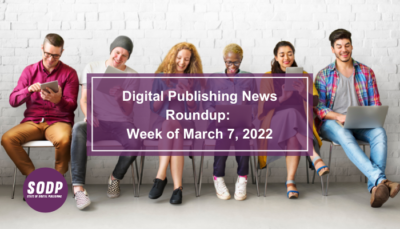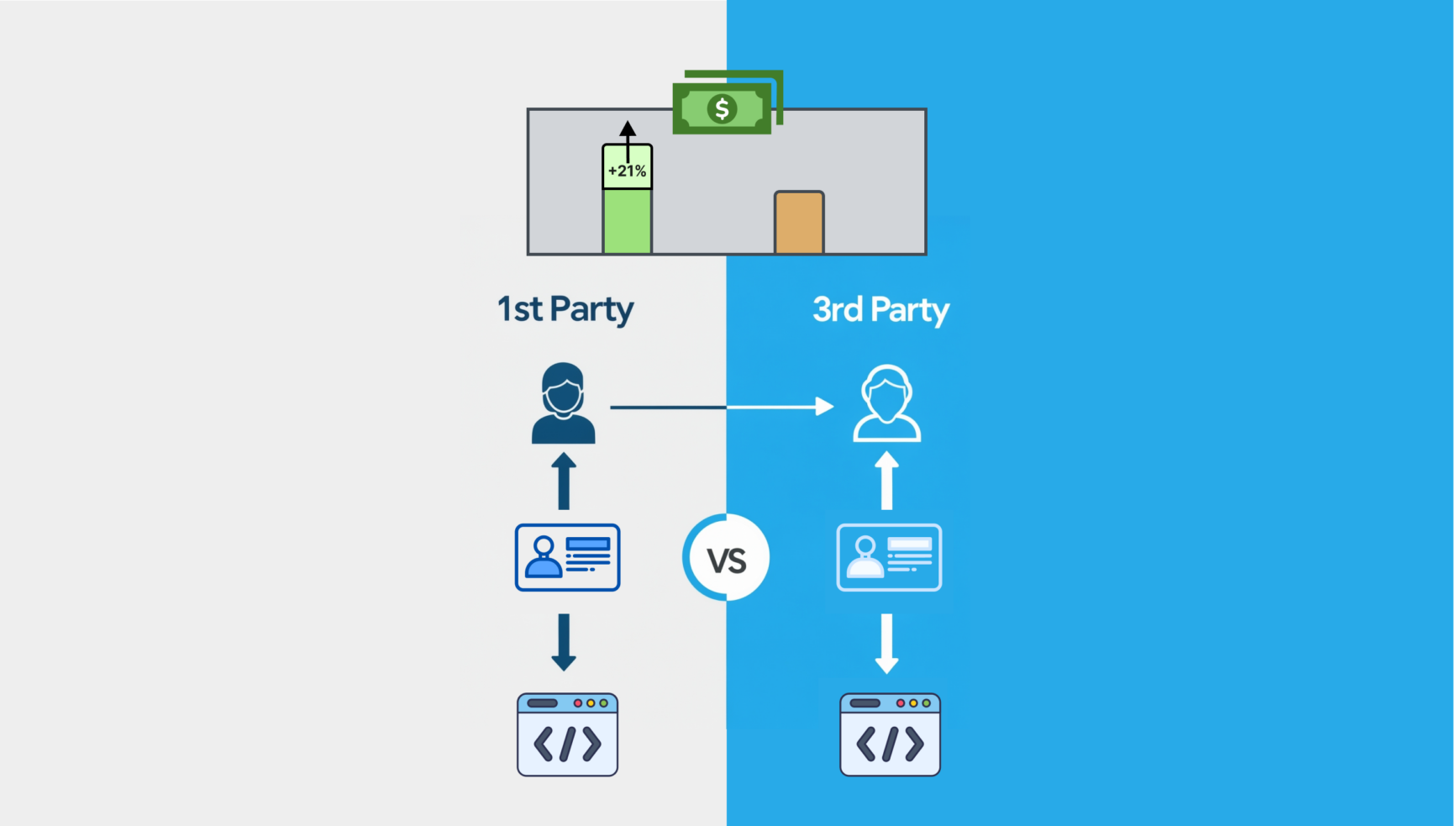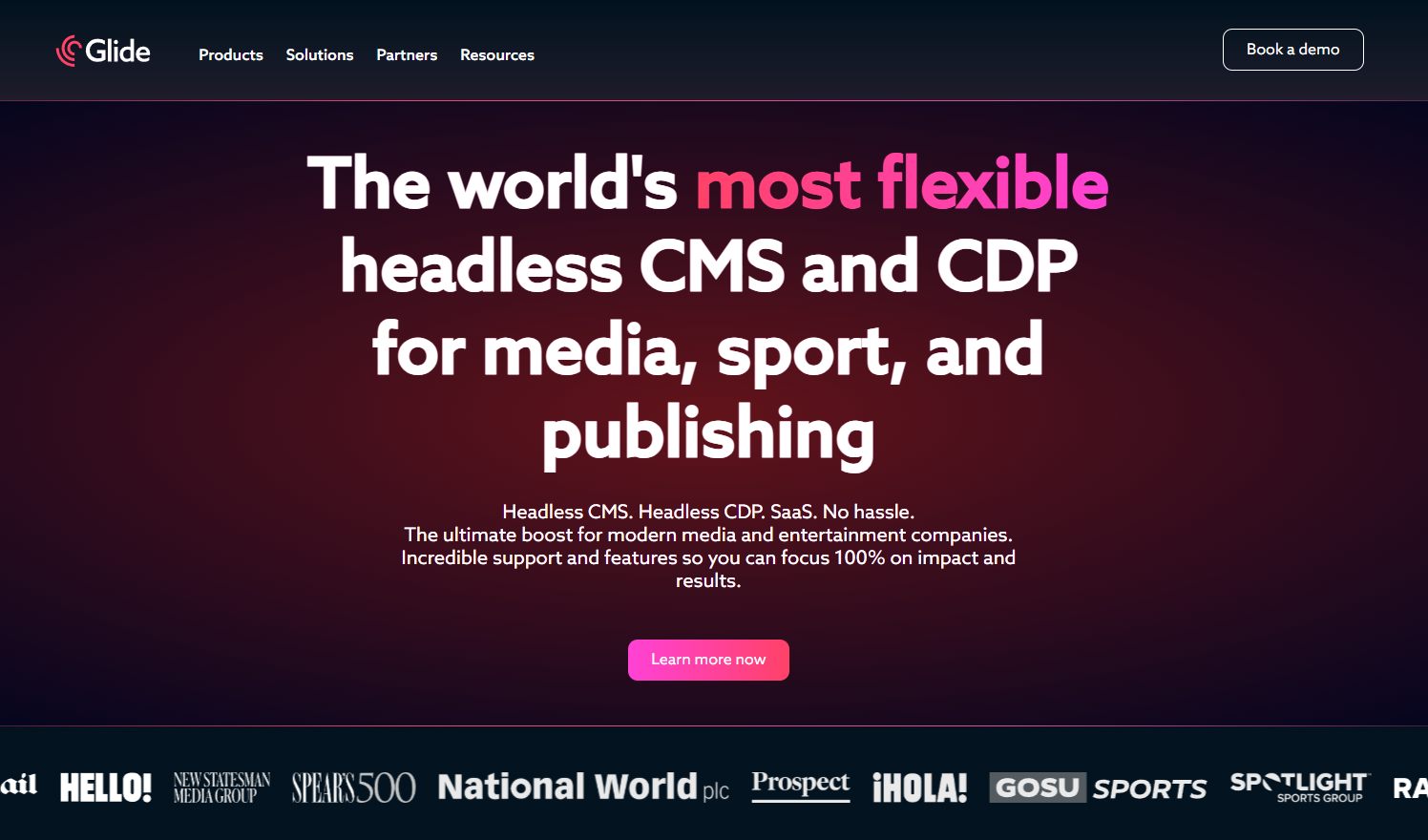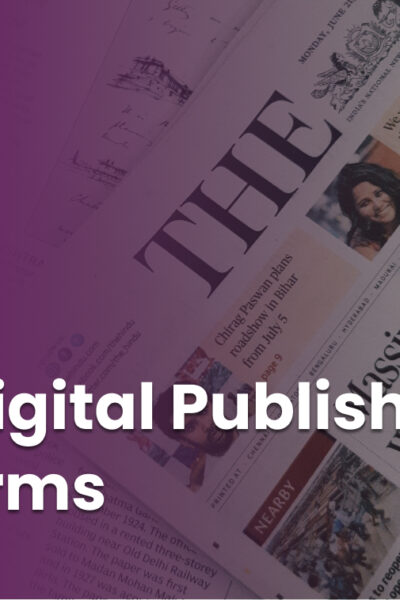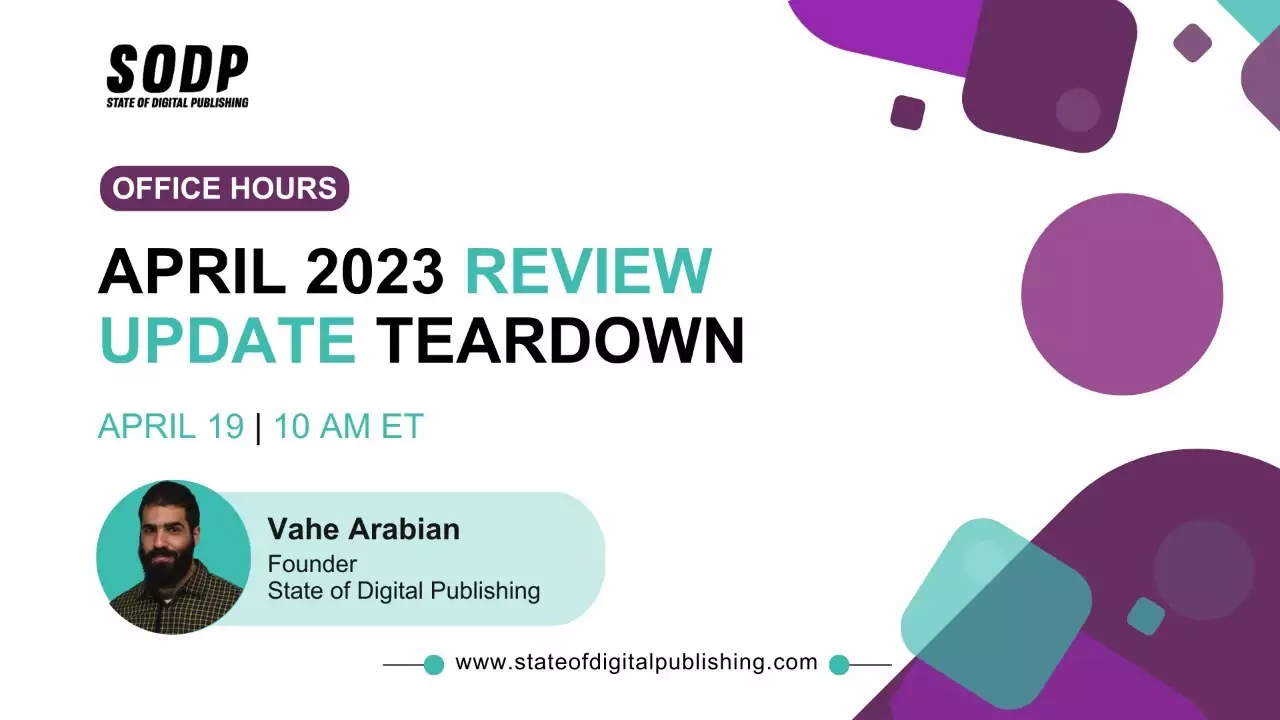What’s been happening in the world of digital publishing over the last week? Here’s your weekly round-up of news, announcements, product launches, and more.
Future of digital publishing
VC funding for news media: How 2021 saw huge uptick in deals
Data from Pitchbook shows that in 2020 venture capitalists invested $0.4m in digital media startups in the US and Europe, a fraction of the $1.6bn invested in 2015, the year Vice secured $400m from Disney. Mergers and acquisitions activity within the sector however is strong with companies looking to merge or buy to get the scale needed to retain customers and take on the tech giants. PWC put the global value of such deals (excluding mega-deals) at $229b in the last quarter of 2021 – more than any quarter in 2019 and 2020. Read more
Why it matters: “Half a decade on we’re in quite a different media landscape. While there’s no shortage of clickbait and viral content for those that are so inclined, the success that some publishers such as the New York Times and (a few) individual Substack stars are seeing through subscriptions shows that quality is something that readers are willing to pay for.”
Google is releasing an open source harassment filter for journalists
Google’s Jigsaw unit is releasing the code for an open source anti-harassment tool called Harassment Manager. The tool, intended for journalists and other public figures, employs Jigsaw’s Perspective API to let users sort through potentially abusive comments on social media platforms starting with Twitter. It’s debuting as source code for developers to build on, then being launched as a functional application for Thomson Reuters Foundation journalists in June. Read more
Why it matters: “Unlike AI-powered moderation on services like Twitter and Instagram, however, Harassment Manager isn’t a platform-side moderation feature. It’s apparently a sorting tool for helping manage the sometimes overwhelming scale of social media feedback, something that could be relevant for people far outside the realm of journalism — even if they can’t use it for now.”
Australia pressured Google and Facebook to pay for journalism. Is America next?
The legislation, known as the News Media Bargaining Code, has enabled Australian news organizations to extract more than $200 million (almost $150 million US) in the year since it went into effect. As a result, the public Australian Broadcasting Corporation can place at least 50 new journalists in underserved parts of the country, while the McPherson Media Group, which publishes such papers as the Yarrawonga Chronicle and the Deniliquin Pastoral Times, expects tech money to fund up to 30 percent of editorial salaries. Read more
Why it matters: “Facebook and Google (whose parent companies are Meta Platforms Inc. and Alphabet Inc., respectively) are on the defensive as more countries consider their own versions of Australia’s approach. Canada and the United Kingdom are moving to enact similar codes, while officials in Indonesia and South Africa have voiced plans to do the same. In the US, Congress is looking for ways to make Google and Facebook pay for content, though legislation to support local journalism has stalled in Congress.”
Advertising
USA Today Owner Gannett Co. Gave Advertisers Inaccurate Information for Nine Months
Publishing company Gannett Co. provided inaccurate information to advertisers for nine months, misrepresenting where billions of ads were placed, according to researchers who provided their findings exclusively to The Wall Street Journal.
Gannett owns USA Today as well as news outlets in 46 U.S. states, from the Arizona Republic to the Detroit Free Press to the Palm Beach Post. Like many publishers, it sells ad space on its sites through real-time digital auctions.
In the case of Gannett, advertisers thought they were buying an ad on one Gannett site—very often the flagship USA Today—but actually purchased space on another, such as one of its many local outlets, according to ad industry researchers. Read more
Why it matters: As the author points out, “Many brands have rules regarding which news topics they want their ads to appear next to, often to avoid being associated with controversial content. The discrepancies in the Gannett auctions meant that many ad auctions couldn’t adhere to those rules, the researchers said.”
EU and UK open antitrust probe into Google and Meta over online ads
Regulators in Europe and the UK have opened an antitrust probe into a deal between Google and Meta on online advertising, in the latest effort to tackle the market power of the world’s biggest technology companies.
The move follows US antitrust investigators who are also probing an agreement informally known as “Jedi Blue”. The search engine giant and Facebook’s parent company have been accused of working together to carve up advertising profits, acting together to buttress their businesses. Read more
Why it matters: As the author points out, “The EU and UK probes represent the latest assault on Big Tech from global regulators that are also preparing to unleash new rules designed to challenge the primacy of groups such as Google, Meta and Amazon. In response, US tech groups have launched lobbying efforts in Washington and Brussels in an effort to protect their interests.”
Audience engagement
“Sounds like a well-trained liar”: Journalists lose some credibility by calling themselves “storytellers”
Journalists leave a bad impression with the public when they call themselves “storytellers,” a new study finds.
Researchers at the University of Cincinnati found that roughly 80% of the U.S.-based Twitter biographies that included “storyteller” belonged to journalists or former journalists, including reporters at The New York Times, BBC, CBS News, Al Jazeera, CBC News, the Associated Press, Fox News, NBC News, Washington Post, and several local television news affiliates. Read more
Why it matters: The article points out: ““It’s a term meant to reflect the very real and creative process journalists go through in relating information to the public,” Calfano [one of the researchers] said. Its widespread use seems to “assume the public views the ‘storyteller’ label as a title or attribute deserving public trust and respect,” as the study notes. But — do they? Turns out the answer is, emphatically, no.”
Amazon launches a ‘live radio’ app, Amp, which lets you play DJ with music and call-ins
Amazon’s Clubhouse competitor has arrived. The retail giant on Tuesday launched a new mobile app called Amp, which allows people to create live “radio shows” where they can act as a DJ by taking callers and playing tracks from its catalog of tens of millions of licensed songs, ranging from classic titles to today’s music. The app is available in a limited U.S. beta, Amazon said. Read more
Why it matters: The article points out: “The new app, which was previously reported by The Verge when in development under the name Project Mic, represents Amazon’s somewhat belated entry into the live audio market. While the app Clubhouse led the way by establishing a new format for live audio social interactions, the idea has since been spun out into numerous competitors — each with their own angle, including Twitter’s Spaces, Facebook’s Live Audio Rooms, Spotify’s Greenroom, and those from smaller startups, like the Mark Cuban-backed Fireside or David Sacks-backed Callin.”
Introducing the Substack app
Substack has posted the following announcement:
“Today, we’re launching an iOS app for reading. It’s like your email inbox, but better.
For readers, the app brings all your Substack subscriptions together in one venue, giving you a beautiful, focused place to read your favorite writers. Discovery features make it easier to find and fall in love with new writers, and the app brings text, audio, video, and community seamlessly together for the best reading experience on the internet.
For writers, your connection to your readers gets upgraded when they choose to install the app. As ever, you retain total ownership of your content and mailing list, but now you also get instant, reliable delivery (no more Promotions folder!), multiple media formats in a single package, and another way for readers to connect with you and your work.” Read more
Why it matters: As the press release points out: “The app helps bring together Substack as an ecosystem, giving you an icon to tap on your home screen that opens up a treasury of quality work by the writers you most trust.”
SEO
Twitter Tests More Visible Alt Text
Content from our partners
A visible “ALT” badge, and exposed image descriptions, are among the features Twitter is testing to improve image accessibility on mobile and desktop.
In an announcement, Twitter states it’s testing the features with 3% of users across iOS, Android, and web browsers.
Twitter is aiming to launch these features globally in the beginning of April, following at least a month of testing. Read more
WordPress Plugin SEOPress Updated With IndexNow Support
SEOPress is the latest plugin for WordPress websites to support the IndexNow protocol, which automatically pings search engines when content is added or updated.
With IndexNow being adopted by a growing number of search engines, including Bing, support among SEO tool companies is ramping up as well. Read more
Google May Surface More Short-Form Video In Search Results
Google is working on ways to show more short-form video in search results, saying it’s a clear and concise format for satisfying certain queries.
This was stated in latest Search Off The Record podcast episode by Google Product Manager Danielle Marshak, who oversees videos in search results. Read more


